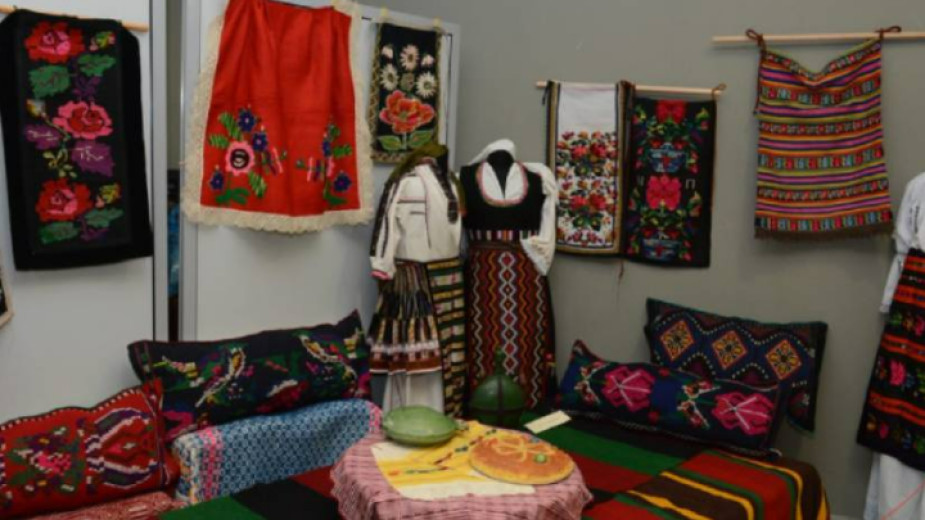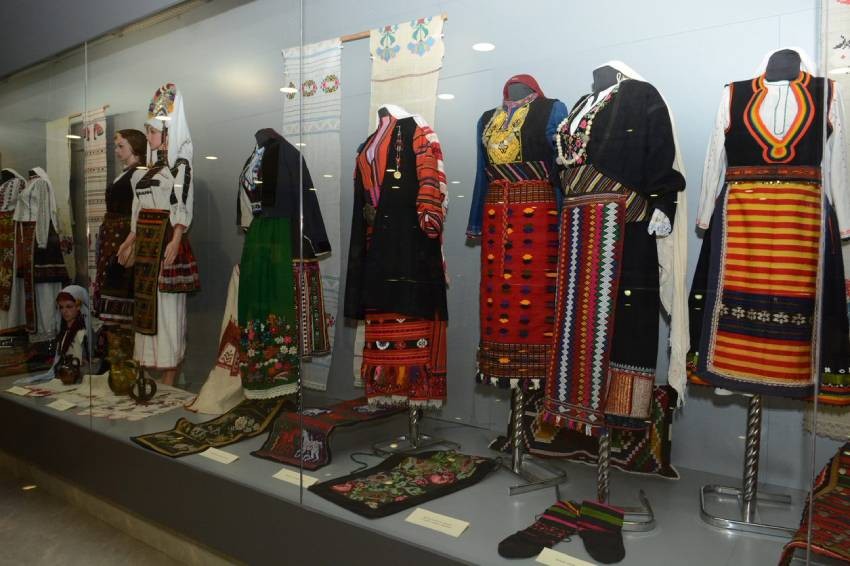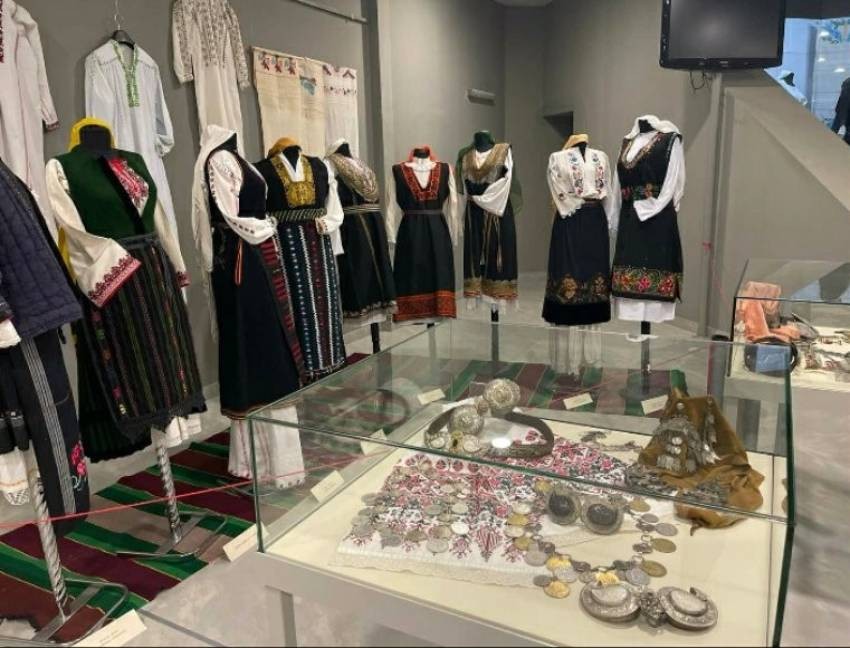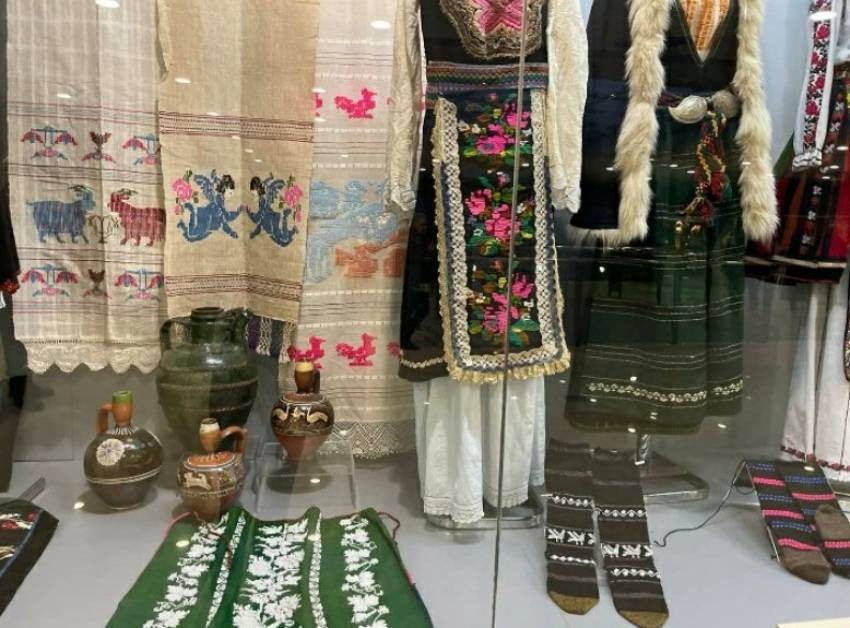 10
10
Traditional women’s national outfits and various household items used by Bulgarians in the period from the end of the 19th and the beginning of the 20th century brought colour to the Regional Museum of History in Stara Zagora. The exhibits are part of an exhibition called “My ethnographic world. Collected and preserved for the generations by Rumyana Mehandova” which is on until 2 May, 2023.

“The exhibits are mostly traditional outfits from different regions of Bulgaria but also many aprons with a diversity of geometric, plant and animal ornaments, towels, mesals – a special kind of towel, part of the dowry, gifted at weddings, engagements and other festive occasions,” Rumyana Mehandova says in an interview with Radio Bulgaria’s Deislava Semkovska. “I am also displaying woven cushions, as well as wine flasks with the portraits of Hristo Botev, Vasil Levski, or with pictures of flowers, for example.”

The dazzling colours of the items of clothing that were once entirely made by hand are complemented by the magic of jewellery – the different items denoted the marital status, the age and the social standing of the woman that owned them. Buckles were a must in any female outfit, as were the strings of gold coins (pendari) that are on display as part of the exhibition.

The skills and the imagination of the master-potters are revealed in an array of different items.
“Pottery is my favourite, it is a long-time passion for me,” Rumyana Mehandova says. “The exhibition features 30 items or so, they are either unique or very rare, there are very few of them even in museums.”

The exposition at the Museum of History in Stara Zagora displays but a fraction of Rumyana Merhandova’s collection. She has been collecting authentic handicrafts for over 40 years and now owns the biggest collection of domestic items in Bulgaria.
“I don’t know what inspired me to put them on display,” Rumyana Mehandova says. “Maybe at one point I just came to the realization that this incredible traditional wealth should be shared with the public. Beauty, collective memory that one shouldn’t keep to oneself, items that every Bulgarian should be able to see. They are sure to touch many hearts, many people will feel proud of their ancestors and the items crafted by them.”
Photos courtesy of Rumyana Mehandova and the Regional Museum of History, Stara Zagora, photographer: Atanas Zhekov
The village of Oryahovitsa, Stara Zagora region, today celebrates its symbol - the walnut tree. There will be a Festival of the Walnut with a varied programme featuring the Kazanlahsko Nastroenie (Kazanlak Cheer) Orchestra, the soloist of..
Disputes in Croatia over sending military personnel to NATO mission in support of Ukraine NATO Acting Deputy Secretary General Boris Ruge visited Croatia to explain to local MPs about the Alliance's mission in support..
Konyovets village near Shumen is marking 160 years since the oldest stud farm in Bulgaria was set up. Celebrations are being organized on the farm on 1 November when officials from the Ministry of Agriculture and Food and of the State Fund..
Nuredin Nuredinaj comes from the historical-geographical region of Gòra in Northeastern Albania, where 90% of the inhabitants identify themselves as..

+359 2 9336 661
